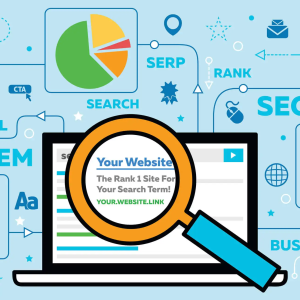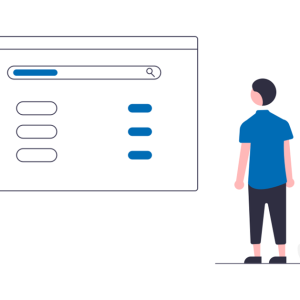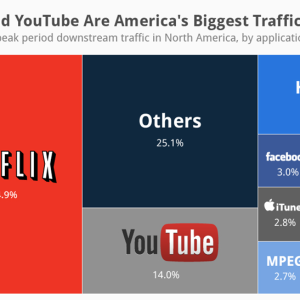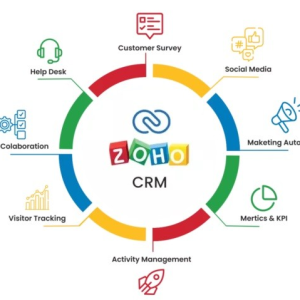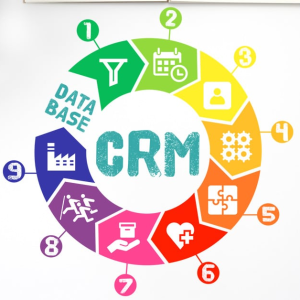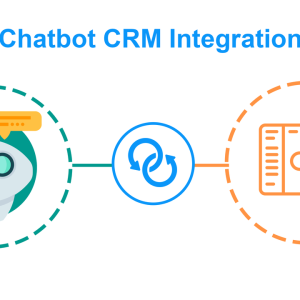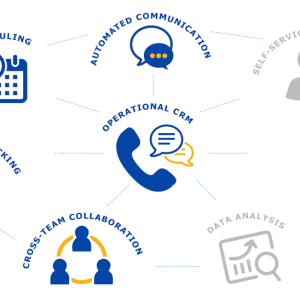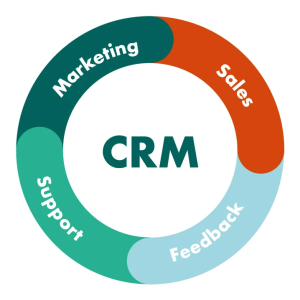Introduction
Google organic search is responsible for 59.2% of the world’s web traffic
(Sparktoro)
SEO, or search engine optimization, is a process that can be used to improve a website’s ranking on search engines. As a business owner, it is essential to understand the importance of SEO in terms of your overall marketing strategy. By incorporating different types of SEO into your online marketing efforts, you can improve your website’s visibility and rank on search engines like Google and Bing. This can help increase traffic to your site and ultimately boost sales.
In this guide, we will explore the different types of SEO, their benefits, and how to use them to improve your website’s ranking.
Content SEO
When it comes to SEO, content is king. To improve your website’s ranking and attract more visitors, you need to create high-quality content that is relevant to your target audience.
Content SEO is the process of making your content, both text and images rank higher in search engine results. By optimizing your content for search engines, you can improve your website’s visibility and attract more visitors. There are many different types of content SEO, each with its benefits.
Types Of Content SEO
There are three main types of content SEO: on page, off page, and Technical. Those we will be learning about further into this article.
On Page SEO
On page SEO is the process of optimizing your website’s content and structure to improve your ranking in search engine results pages (SERPs).
On Page SEO Factors
There are several on page SEO factors that you can optimize, including your title tag, meta description, headings, images, and content.
One of the most important on page SEO factors is the content on your website. Search engines use algorithms to assess and rank websites based on several different criteria, including their relevance and quality. By writing high-quality content that is relevant to your target keywords, you can help improve your site’s ranking in SERPs.
Let’s take a closer look at some of the key on page SEO factors and how to optimize them.
1. Title tags and meta descriptions
Your title tag is one of the most important on page SEO factors, as it helps search engines understand what your page is about. When crafting your title tags and meta descriptions, it’s important to include keywords that accurately reflect the content on your page.
2. Headings
The headings on your website, also known as H1 tags, are another important on page SEO factor. These tags help search engines understand the structure of your content and can be used to target specific keywords.
3. Images
The images on your website can also be optimized for SEO. By including keywords in your image file names and Alt text, you can help improve your website’s ranking in image search results.
4. Content
As we mentioned above, the content on your website is one of the most important on page SEO factors. To optimize your content for SEO, make sure to include relevant keywords throughout your content. You should also aim to create long-form content of at least 1,000 words so that you can fully explore a topic and include all of the necessary information that your target audience is looking for.
Overall, there are many different types of SEO that you can use to improve your website’s ranking in SERPs. By optimizing each of the different types of SEO, you can help drive more traffic to your website and improve your business’s visibility online.
5 On page SEO benefits
On page SEO is one of the most important aspects of a successful SEO strategy. By optimizing your website’s content and structure, you can improve your ranking in search results and attract more visitors. Here are five benefits of on page SEO:
1. Increased visibility in search results.
2. Increased website traffic.
3. Improved website usability.
4. Enhanced brand awareness.
5. Increased leads and sales.
Which businesses should use On page SEO?
On page SEO is a critical part of any marketing strategy, and it is especially important for businesses that want to rank higher on search engine results pages. By optimizing your website’s content and structure, you can make it easier for search engines to understand and rank your site.
As mentioned earlier, there are several on page SEO techniques that you can use, such as using keywords in your titles and descriptions, optimizing your images and videos for search engines, and structuring your website to make it easier for search engines to crawl.
Off Page SEO
Off page SEO is the practice of optimizing your website’s ranking through external means. This includes activities such as link building, social media engagement, and content promotion. By improving your website’s off page SEO factors, you can improve its ranking and attract more visitors.
Off page SEO factors
Off page SEO factors are all the things you do outside of your website that can help improve your ranking. These include things like link building, social media, and PR.
#1 Link Building
Link building is one of the most important off page SEO factors. When other websites link to your website, it tells Google that your site is valuable and authoritative.
There are two main types of link building:
1. Link acquisition
This involves actively seeking out websites that would be willing to link to your site. For example, you might reach out to other bloggers or businesses in your industry and ask for a link. You could also attend networking events where you can meet people who run websites that might be interested in linking to your site.
2. Link building through PR
This involves creating and promoting content that links back to your website. For example, you could write an article or create a video related to your business, and then promote it through channels like social media, email marketing, and other public relations efforts.
Link building can be a time-consuming process, but it’s worth it. Not only does it help improve your website’s ranking, but it also helps drive traffic to your site.
#2 Social Media
When you share your content on social media, you’re essentially getting free advertising for your website.
The more people that see your content, the more likely they are to visit your site. And, if your content is share-worthy, then you could see a viral effect where even more people see and share it.
#3 Public Relations
If you get featured in a major publication or website, that can help improve your authority and reputation. In turn, that can lead to more links and social shares, which can further improve your ranking.
Overall, off page SEO is just as important as on page SEO. By focusing on both, you can give your website the best chance of ranking well in search engines.
Which businesses should use Off page SEO?
Have you ever noticed how some of the most successful businesses in America have killer off page SEO? These include big names like Nike, Redbull, and Apple.
What does this mean for your small business marketing efforts: By creating high-quality content and building a strong online presence, you can attract more visitors to your website and grow your business.
Off page SEO vs On page SEO
When it comes to SEO, off page SEO is often seen as more important than on page SEO. This is because off page SEO focuses on building backlinks and increasing visibility, while on page SEO focuses on optimizing your website content and structure. Here are five benefits of off page SEO compared to on page SEO:
1. Off page SEO is more effective at improving your website’s ranking in search engines. By building high-quality backlinks and increasing your online visibility, you can improve the authority of your website and rank higher in search results.
2. While on page SEO is focused on optimizing the content of your website, off page SEO focuses on promoting your website and making it more visible online. This means that off page SEO is more effective at driving traffic to your website.
3. Off page SEO is more effective at building relationships with other websites and influencers. By guest blogging, participating in forums, and engaging in social media, you can build relationships with other websites and influencers in your industry. These relationships can help you to build trust and credibility for your website.
4. Off page SEO is more effective at building brand awareness. By increasing your online visibility and promoting your website, you can reach a larger audience and build brand awareness for your business.
5. While on page SEO can seem like a lot of work, off page SEO strategies are relatively quick and easy to implement. By focusing on building links and increasing visibility, you can improve your website’s ranking with minimal effort.
Ultimately, all types of SEO should be part of your overall marketing strategy to effectively promote your website online. With the right strategies and tools, you can improve your website’s ranking, drive more traffic, build relationships with other websites and influencers, boost brand awareness, and much more.
Local SEO
Local SEO, or search engine optimization for your local area is a must if you want to rank higher on Google. The key elements of this process are getting reviews from people who live in the same places where they do business so that their opinion will be considered when potential customers seek information about what services/products exist nearby; adding relevant keywords throughout site content which helpfully narrows down results by including specific phrases related specifically only just one’s brand name.
Local SEO factors
When optimizing your website for local SEO, there are several factors to consider. Some of the most important include your business location, target keywords, and NAP (name, address, phone number) consistency.
Business Location:
When optimizing your website for local SEO, it’s important to use the correct business location information. This includes your business name, address, and phone number. When you include this information on your website or other online platforms (such as Google My Business), make sure that it is accurate and consistent across all platforms so that users can easily find you.
Target Keywords:
To rank well in local searches, you will also need to choose the right target keywords. These are the terms or phrases that potential customers are likely to search for when looking for businesses like yours. When choosing target keywords, be sure to consider both what users are searching for and how likely they are to convert into customers.
NAP Consistency:
NAP stands for name, address, and phone number. When optimizing your website for local SEO, it’s important to use the same NAP information on all of your online profiles, including Google My Business, social media accounts, and local directories. This consistency helps search engines to more easily identify that you are a legitimate business and rank you higher in relevant searches.
By taking these steps to optimize your website for local SEO, you can help to attract more customers to your business and increase your online visibility. With consistent NAP information across all platforms and the right target keywords, you’ll be able to improve your website’s ranking in local searches and draw in new customers.
Which businesses should use Local SEO?
If you’re a business owner, then you know that SEO is an important part of your overall marketing strategy.
But what about local SEO? Should businesses focus on local SEO?
The answer is yes – businesses should focus on local SEO. Here’s why:
Local SEO is all about targeting a specific geographic area
This is beneficial for businesses that want to attract customers from a certain city, state, or country. By ranking higher in local search results, you’ll be more visible to potential customers who are searching for businesses like yours.
Local SEO can help you stand out from the competition
If you’re not using local SEO, then your competitors are probably already doing it. By implementing local SEO, you can level the playing field and give yourself a better chance of ranking high in local search results.
Local SEO can be very cost-effective
You don’t have to spend a lot of money on paid advertising to see results from local SEO. Many local SEO tactics are free or very low cost, such as optimizing your website and creating local content.
There are many other benefits to using local SEO, including increased visibility and more traffic to your website. If you’re a business owner looking to expand your reach and attract more customers, then local SEO is the way to go!
Technical SEO
Technical SEO is the part of search engine optimization that deals exclusively with HTML, CSS, and JavaScript. Humans can’t read code so this stuff has to be done by machines rather than people but it’s still necessary for a site to function properly on both desktop and mobile devices- which means any webmaster worth his salt should know-how!
Technical SEO factors
When it comes to technical SEO factors, there are several things you can do to improve your website’s ranking.
Indexing
One of the most important is making sure your website is properly indexed by search engines. You can do this by submitting your site’s XML sitemap to Google and Bing, and by ensuring that your site’s robots.txt file is properly configured.
Site speed
Search engines prefer websites that load quickly, so it’s important to optimize your site for speed. You can do this by reducing the number of HTTP requests, using caching, and minifying your CSS and JavaScript files.
Heading tags
By paying attention to how you format your page titles and headings, it is possible for search engines like Google or Bing to easily crawl and index the content on a site.
Which businesses should use Technical SEO?
Businesses that rely on website traffic to generate leads and sales should use technical SEO.
Technical SEO includes optimizing your website’s title tags, meta descriptions, header tags, and images. You can also improve your website’s technical SEO by creating a sitemap and submitting it to search engines.
Need for Technical SEO could be anything from coding languages like PHP & JavaScript – used for developing websites; database searches (SQL) – used by apps such as Google Analytics to return information about visitors’ habits when they’re browsing your site — the content management system(CMS); web analytics tools…etc., so it is important not only what kind of computer you have but also how well optimized a particular piece of functionality is.
Enterprise SEO
Enterprise SEO is a comprehensive and data-driven approach for businesses with more than 100 employees that want to optimize their website’s ranking on search engines. It uses an enterprise-level of analysis, involving metrics such as traffic source or country location when applicable to find areas where improvements can be made so your company will rank higher within Google searches!
Enterprise SEO Tips
When it comes to SEO, businesses often have different needs than those of individual bloggers or online retailers. Enterprise SEO is all about optimizing a company’s website for maximum visibility and traffic from search engines. Here are some tips for enterprise SEO:
- Prioritize competitive keywords
- Optimize your content for mobile, featured snippets, and voice search
- Use structural data
- Work with an SEO agency or consultant
- Monitor and measure your results strictly regularly
Mobile SEO
When it comes to SEO, mobile optimization is increasingly important. In fact, recent studies have shown that more people are now using their mobile devices to access the internet than ever before. This means that if your website isn’t optimized for mobile devices, you’re likely losing out on a lot of potential traffic.
Mobile SEO is slightly different than desktop SEO
For example, mobile users typically rely on voice search and local searches more than desktop users do, so it’s important to optimize your website with these trends in mind. This means that you should focus on using keywords that are specific to your business and location, using schema markup for local businesses, and ensuring that your site loads quickly on mobile devices.
There are also other factors that you should consider when optimizing your website for mobile users, such as the size and placement of images, creating responsive pages that adapt to different screen sizes, and using a mobile-friendly layout. By taking these steps, you can help ensure that your website ranks high in search results when people visit your site from their mobile devices.
Conclusion
SEO is an important part of any online marketing strategy. By understanding the different types of SEO and how to use them, you can improve your website’s ranking and attract more visitors. In this guide, we have explored the different types of SEO, their benefits, and how to use them to improve your website’s ranking.
We also looked at enterprise SEO, which is a data-driven approach for businesses with more than 100 employees that want to optimize their website’s ranking on search engines. Whether you’re looking to improve your mobile optimization or simply focus on optimizing your content for voice and local searches, there are many different types of SEO you can use to improve your website’s ranking. So what are you waiting for? Start optimizing your website today with 12 Channels and watch your traffic grow! For more information, visit us at 12channels.in

